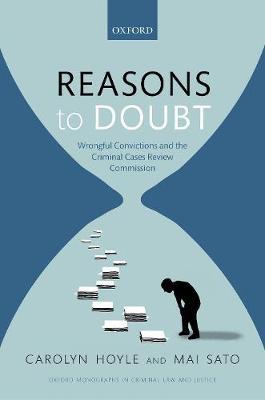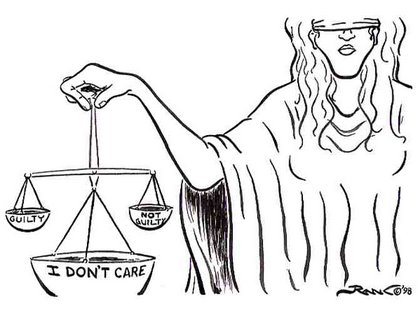Reasons to Doubt
 Reasons to Doubt presents the findings of the first thorough empirical study of decision-making and the use of discretion within the Criminal Cases Review Commission. It reveals what happens to applications for post-conviction review when those in England, Wales, and Northern Ireland who believe they are wrongfully convicted apply to the Commission, the only body that can refer a case back to the Court of Appeal once appellants opportunities for direct appeal are exhausted. Hoyle and Sato study each stage of the Commission's review process in detail. Through in-depth analysis of case files and interviews, they scrutinize the Commission’s operational practices, its working rules and assumptions, and the influence that the Court of Appeal’s evolving jurisprudence has on the Commission’s decision-making.
Reasons to Doubt presents the findings of the first thorough empirical study of decision-making and the use of discretion within the Criminal Cases Review Commission. It reveals what happens to applications for post-conviction review when those in England, Wales, and Northern Ireland who believe they are wrongfully convicted apply to the Commission, the only body that can refer a case back to the Court of Appeal once appellants opportunities for direct appeal are exhausted. Hoyle and Sato study each stage of the Commission's review process in detail. Through in-depth analysis of case files and interviews, they scrutinize the Commission’s operational practices, its working rules and assumptions, and the influence that the Court of Appeal’s evolving jurisprudence has on the Commission’s decision-making.
Further publications focusing on this research include:
C. Hoyle (2020) ‘The Shifting Landscape of Post-Conviction Review in New Zealand: reflections on the prospects for a Criminal Cases Review Commission’, Current Issues in Criminal Justice
C. Hoyle (2019) ‘Forensic Science and Expert Testimony in Wrongful Convictions: A study of decision-making at the Criminal Cases Review Commission’ British Journal of Criminology 59(4), 919-937.
C. Hoyle (2019) Challenging Unsafe Convictions, in Proof, No. 4 ‘Crime and Punishment’ The Justice Gap
M Sato, C Hoyle & N-E Speechley, ‘Wrongful Convictions of Refugees and Asylum Seekers: Responses by the Criminal Cases Review Commission’, The Criminal Law Review, 2, 106, 2017
Carolyn Hoyle gave oral and written evidence to the Westminster APPG Miscarriages of Justice Committee in September 2019.
She also gave oral evidence to the House of Commons Justice Committee on the Criminal Cases Review Commission (Twelfth Report of Session 2014-15) in March 2015 (see paras 15, 18, 24, 25, 36, 38, 40, 48 and written evidence in December 2014.

